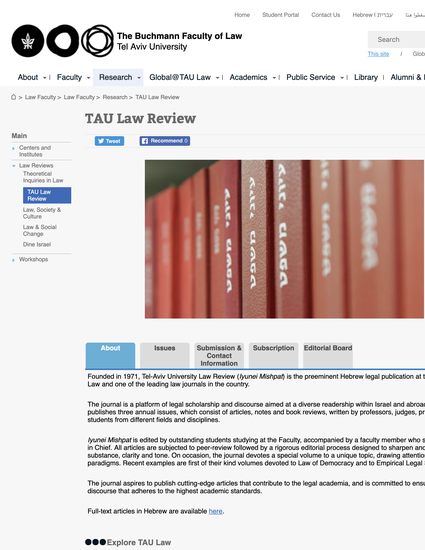
Article
Crafting peace in Tunisia: Law, protest & the National Dialogue Quartet
Tel Aviv University Law Review
(2016)
Abstract
Against the backdrop of increasing securitization in Tunisia’s democratic transition process, this article examines the role of different social actors to maintain peace and stability, and who were awarded the 2015 Peace Nobel Prize, for their efforts to keep the country from slipping into chaos and conflict in 2013. Tunisia was facing some of the same issues as Egypt: an Islamist-led government that was ignoring the secular opposition when crafting a new constitution, protests in the street, high-profile assassinations and radical Salafist activities. Contrary to Egypt, Tunisia’s political elites continued the path towards democratic consolidation. This achievement, however, would not have been possible without the brokerage of the “National Dialogue Quartet.” The quartet consists of the union federation UGTT, the Confederation of Industry, Trade & Handicrafts, the Tunisian human rights league and the order of lawyers. These social actors served as a crucial mediator between the secular and Islamist forces in the country in order to broker a compromise on the constitution and create a technocratic interim government and an independent election commission. In their article, the authors map the different roles of involved actors notably focusing on the intersection between contentious politics, collective action and law. They also provide a section with lessons learned for future revolutions and transitions.
Keywords
- Tunisia,
- Transition,
- Social actors,
- Labor unions,
- Law
Disciplines
Publication Date
Summer 2016
Citation Information
Arnaud Kurze and Yaniv Roznai. "Crafting peace in Tunisia: Law, protest & the National Dialogue Quartet" Tel Aviv University Law Review (2016) Available at: http://works.bepress.com/arnaud-kurze/23/
